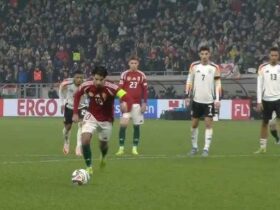The legendary Uruguayan certainly has one more year left, but he would have to make sacrifices to stay in South Beach
The defining image of Inter Miami’s 2024 Playoffs won’t be Lionel Messi lifting the MLS Cup. It won’t be a smile from Tata Martino, or hugs between jubilant players, celebrating in South Beach.
Instead, it is the shot of an angry Luis Suarez, pushing Atlanta United goalkeeper Brad Guzan into the back of the net after Messi’s goal in the Herons’ game 3 loss, the biggest upset in MLS history. It was, at the time, a somewhat funny scene – albeit one that came with some predictable social media vitriol.
But it was emblematic of the way Suarez’s influence for this side waned over the course of the 2024 season.
The Uruguayan was prolific during the regular season, scoring 20 goals and linking up with Messi in so many predictably wonderful ways. Those instinctive connections that had carved La Liga and the Champions League apart were still alive. Sure, the legs were older. Yet the brain worked just as fast, the synapses still snapping away. At times, it was spellbinding.
However, when it all got real, when the games started to matter, Suarez’s flaws were exposed. He may still be an excellent goalscorer, instinctive in the box and clever in his movement. But MLS playoffs, in two short weeks, laid bare the issues that were always feared: Suarez is aging, and in this athletic league, his weaknesses can be exploited.
What went wrong for Suarez and Miami
Look at the numbers, and everything suggests that Suarez had an agreeable round one showing against Atlanta. The forward scored a crucial goal in game one, and was a nuisance in attack throughout. He had more touches inside the Atlanta box than any other Miami player. Only Messi took more shots. In abstract, all of the key pieces were there.
But watch closely, zoom in, and things weren’t so smooth. Suarez drifted in and out of the final two games of the series, at times marked out of the contest by Atlanta. He missed two big chances in the decisive game 3, and was well denied by Guzan on a handful of occasions.
Off the ball, things were worse. Miami are a confusing side out of possession. They aren’t athletic enough to press high, and they’re too old to drop deep and hit on the break – those aging legs can’t handle it. The result is open, cavernous spaces in the midfield. And Suarez is partially to blame. In the second and third games, in particular, he didn’t cut passing lanes like he should. Atlanta threaded the ball right through Miami. The game passed him by.
And when he went on solo runs to close the ball down, the rest of the Miami team didn’t follow him. There were numerous times in which this aging striker – who has admitted that he cannot exist without pain in his knees – sprinted after the ball, and tried to hound an opposing defence, only to find that he was alone in his efforts.
There is something to be said here for modification, or adaptation. And Suarez is a smart footballer with many years of experience. At his best, in his athletic prime, he was an immensely effective presser and defender. He, alone, is not at fault here. Still, the point remains: asking Suarez to move, consistently, for 90 minutes, is an unrealistic remit for a player of his age.






Leave a Reply